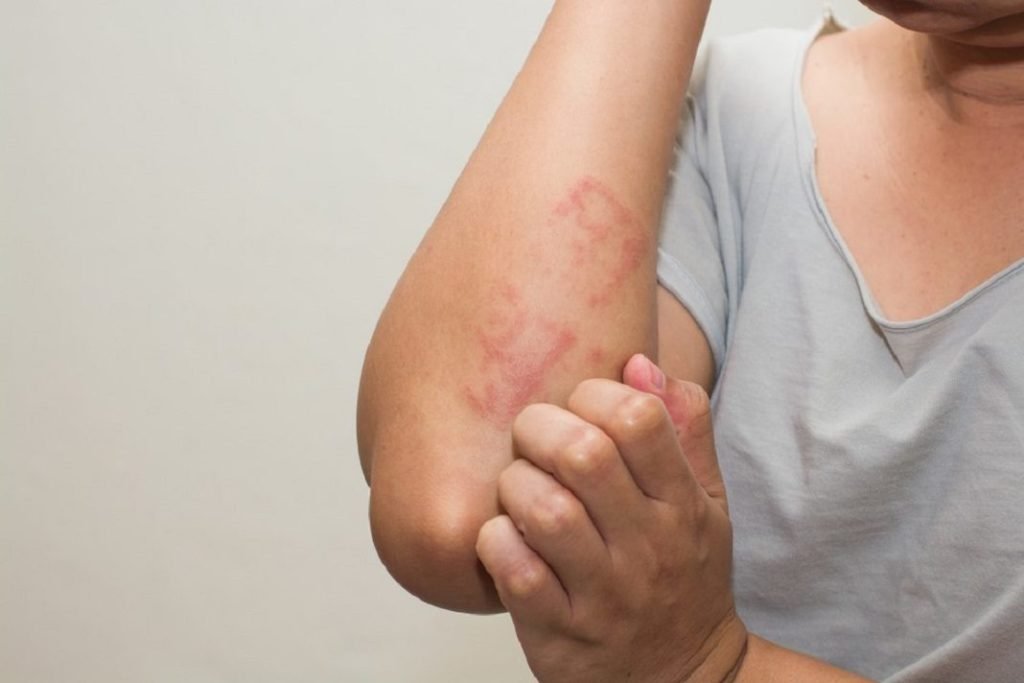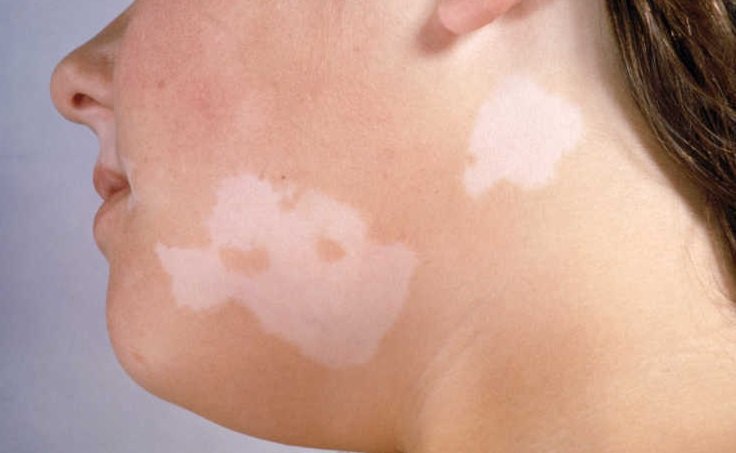Eczema
Eczema (also known as dermatitis) is a dry skin condition. It is a highly individual condition which varies from person to person and comes in many different forms. Eczema causes skin sores and cracks that are susceptible to infection. These infections are usually very minor, but they do require treatment with antibiotics or they may become very severe. See a health care professional if an infection is suspected.

Eczema is a condition where patches of skin become inflamed, itchy, red, cracked, and rough. Blisters may sometimes occur. Eczema may fade in adulthood, but people who have eczema tend to have lifelong problems with skin irritation and related problems.
Vitiligo
Vitiligo is an acquired, idiopathic, progressive whitening of the skin and hair characterized by destruction of pigment producing cells in the skin called melanocytes. Vitiligo appears to affect at least 1% to 2% of the population, irrespective of sex, race, or age and 50% begin before age 20. The more dark skinned a person is, the more their vitiligo stands out, because of the contrast between affected and unaffected areas of skin. People from families with an increased prevalence of thyroid disease, diabetes mellitus, and vitiligo appear to be at increased risk for development of vitiligo.

Vitiligo is a long-term problem in which growing patches of skin lose their color. It can affect people of any age, gender, or ethnic group.
Keloids and scar
A keloid, sometimes referred to as a keloid scar, is a tough heaped-up scar that rises quite abruptly above the rest of the skin. It usually has a smooth top and a pink or purple color. Keloids are irregularly shaped and tend to enlarge progressively. Unlike scars, keloids do not regress over time.

Keloids should not be confused with hypertrophic scars, which are raised scars that do not grow beyond the boundaries of the original wound and may reduce over time
Psoriasis treatment
Psoriasis is a multifactorial genetic disease. About 30% of people with psoriasis have a family history of the condition, and certain genes have been linked to psoriasis. However, the condition will only appear if it is triggered by an environmental factor. Triggers may include stressful life events, infection with certain viruses and bacteria, skin injury, or reactions to certain medications.

The treatment of psoriasis should be individualized and depends on patient and disease factors. Treatment is concerned with control rather than cure. Psoriasis can be managed with sustained judicious use of various treatments.
Skin tags
Skin tags are small flesh-coloured, pink or brown growths which appear on the skin, usually due to friction. They present no medical threat, but people often choose to have them removed for cosmetic reasons or due to discomfort. These flaps of skin are very common, particularly on the neck, armpits and groin, and our dermatologists have performed many skin tag removals.

Some people may choose to carry out a skin tag removal procedure themselves at home; however, we strongly advise against this as it can present problems such as bleeding and scarring.
